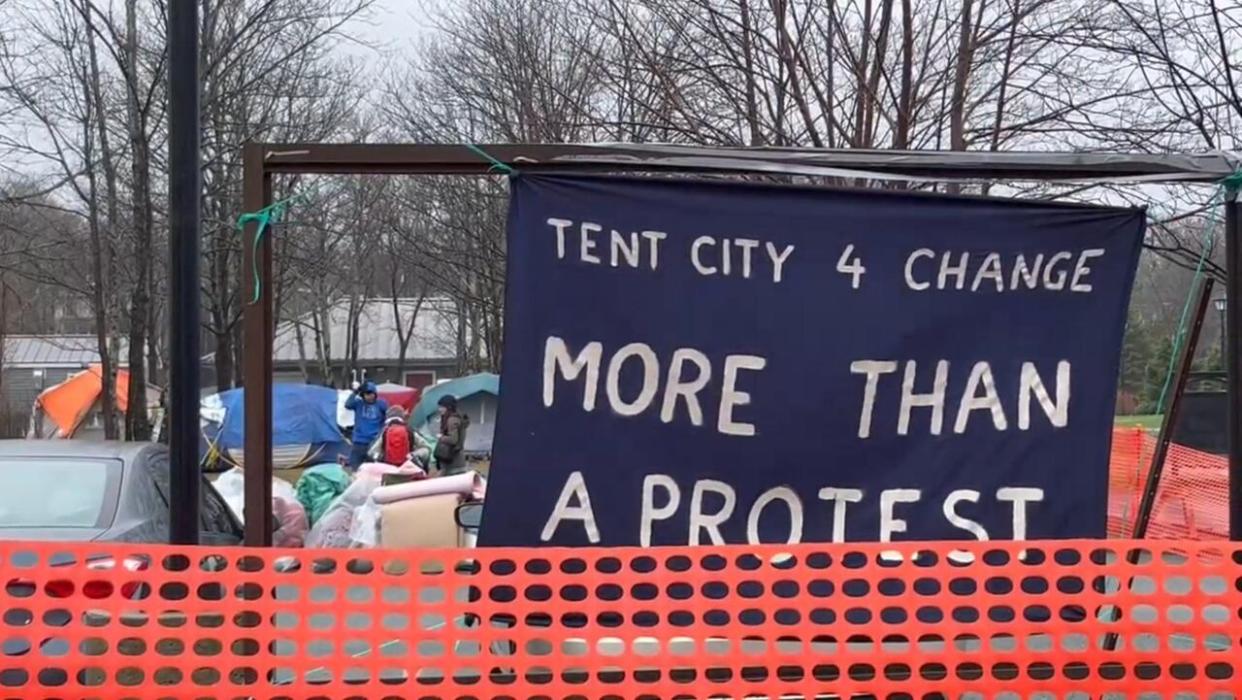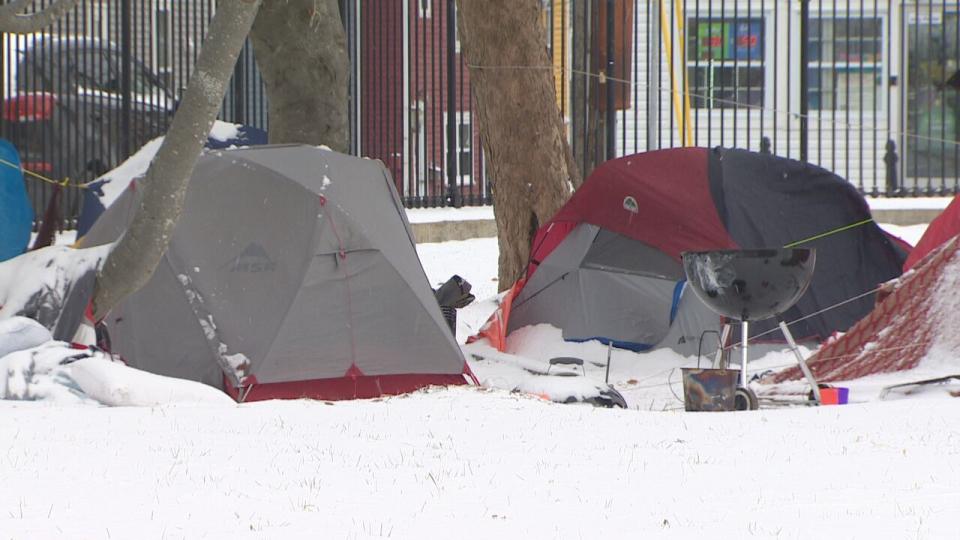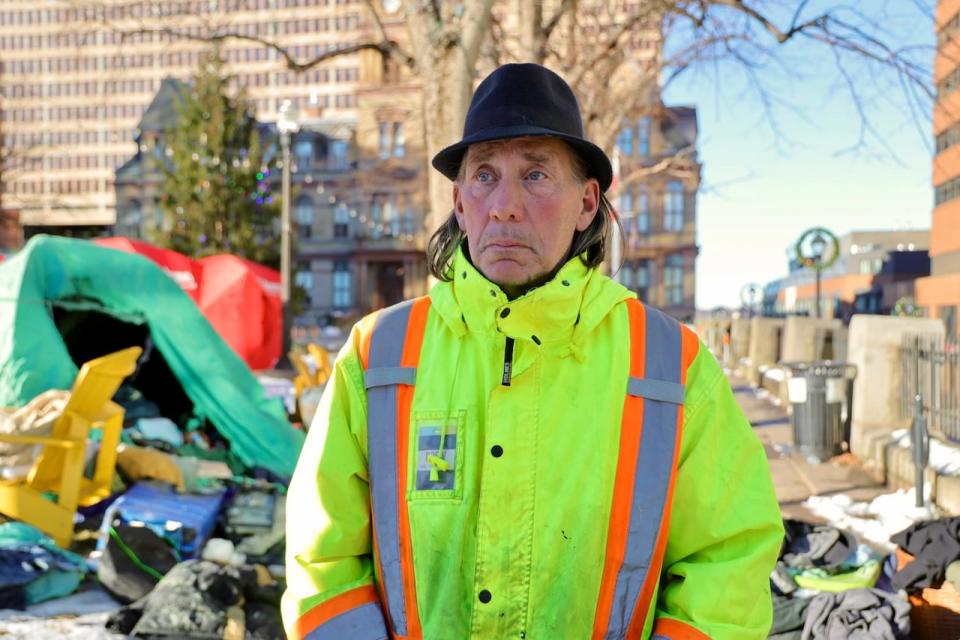St. John's tent city sweep pushed homelessness 'back into the shadows,' advocate says

An organizer with the tent encampment dismantled at Colonial Building in St. John's last week says the provincial government cleared out at least 20 people without offering them secure places to live — and didn't accomplish much more than pushing housing affordability back into the shadows.
Lee Turner, an advocate with the Tent City for Change organizer, said some of the encampment's residents are already sleeping outside again.
"There are quite a few people who are already back out sleeping rough in tents," said Turner in an interview Tuesday.
"That was a safe place for many people who did not feel safe or welcome or comfortable in any other housing option."
Turner spoke with CBC News just days after police and government workers forcibly removed tents and other belongings from provincial property. The tent encampment had been entrenched on Colonial Building grounds for several months.
"The whole focus of the work we're doing at the Colonial tent encampment site is working with the individuals concerned, those in the tents … working with them to finding a suitable accommodation, and that work is ongoing," Infrastructure Minister John Abbott said Friday.
In an interview Monday, Abbott pointed to a recent tent fire that injured one person as a "galvanizing" factor for dismantling the encampment.
"The thing that was concerning me and my colleagues in government, the community at large, was … the physical safety of the individuals that were camping there, their mental health and well-being. There were a lot of behaviours and activities at the site that were really not conducive to helping people move on to better accommodation," Abbott said.

The tent encampment lasted, and grew, throughout the frigid winter months. (Ted Dillon/CBC)
But Turner remains suspicious of government timing, pointing out the encampment was cleared two days before the first cruise ship of the season landed in St. John's harbour.
"We definitely think that tourism season had a big role to play," Turner said.
"They're looking to push this out of the public eye as quickly as possible and pushing homelessness back into the shadows, so that people weren't talking about it as much."
Turner says volunteers are still in touch with the encampment's residents and have been offering necessities like food to those who don't have acceptable housing.
Lessons from Nova Scotia?
The encampment at Colonial Building was the first of its kind in Newfoundland and Labrador. Farther west, in Halifax, housing advocate Steve Wilsack says city officials have learned to deal with homelessness in a "more appropriate manner," after riots broke out three years ago during a police sweep.
As in St. John's, Wilsack said, Halifax volunteers had helped residents with electricity and heating throughout the winter, and also encountered safety problems with propane tanks. The city also converted hotels — which is in the works in St. John's — and opened additional shelters.
"By the end of it, most of the residents in the various encampments did find alternative places to go," Wilsack said. But it hasn't stopped more encampments from popping up in recent months.
"We have to, as a society figure out a long-term solution. We have to figure out a way to stop this whack-a-mole, where basically we get rid of one camp and they pop up somewhere else," he said.
"Reality is, they are going to pop up, and you have to set up minimum standards in terms of electricity, security. You have to have social workers engaged. You have to figure out a way … to get people off the streets, and that's the bottom line."

Steve Wilsack, a volunteer at tent encampments in Halifax, says his city found some success by converting hotels into shelters. (Jeorge Sadi/CBC)
Turner says Friday's sweep didn't have a positive effect on the city's homeless population.
"What they're doing now is only further criminalizing and displacing people who are experiencing homelessness," Turner said.
"Our movement is not going anywhere, and it is potentially stronger than ever."
Download our free CBC News app to sign up for push alerts for CBC Newfoundland and Labrador. Click here to visit our landing page.


